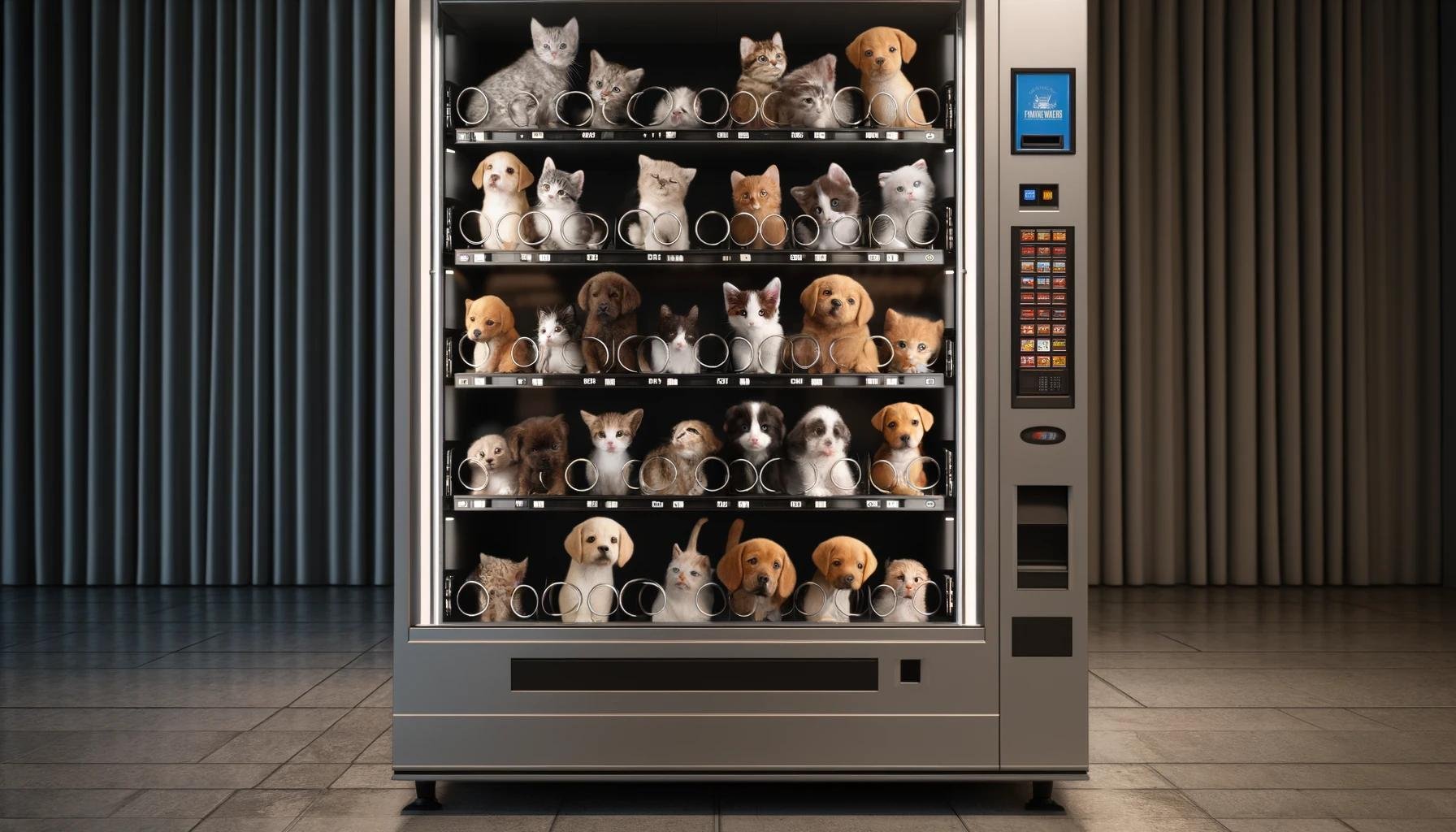Here we find the scene of a vending machine filled with kittens and puppies for sale. Each compartment houses an adorable creature, their innocent eyes capturing the tenderness and emotional depth of the moment.
Animal Welfare Concerns Raised by Self-Service Pet Vending Machines
Have you ever heard of self-service pet vending machines? Well, they’re a real thing in China, and they’re causing quite a stir. These machines allow customers to purchase live animals like puppies and kittens with just the push of a button. While some may see this as a convenient way to acquire a new pet, others are raising serious concerns about animal welfare.
One of the main issues with these vending machines is the lack of oversight and regulation. Without proper monitoring, there’s no way to ensure that the animals are being treated humanely. They could be kept in cramped, unsanitary conditions or even mistreated by the operators of the machines. This raises serious ethical questions about the welfare of these innocent creatures.
Furthermore, the impulse nature of these purchases is troubling. Buying a pet should be a well-thought-out decision, not something done on a whim while grabbing a snack from a vending machine. Pets require time, money, and commitment, and potential owners need to understand the responsibilities that come with pet ownership. By making it so easy to acquire a pet, these vending machines could be encouraging impulsive decisions that may not be in the best interest of the animals.
Another concern is the potential for these machines to fuel the illegal pet trade. With no background checks or screening processes in place, there’s no way to know where these animals are coming from. They could be sourced from puppy mills or other unethical breeding operations, contributing to the cycle of animal cruelty. By supporting these vending machines, consumers may inadvertently be supporting a cruel and exploitative industry.
In response to these concerns, animal welfare advocates in China have been speaking out against the use of self-service pet vending machines. They argue that these machines prioritize profit over the well-being of the animals and that more stringent regulations are needed to protect them. Some have even called for a ban on the machines altogether, to prevent further harm to vulnerable animals.
Despite the outrage, the popularity of these vending machines continues to grow in China. Proponents argue that they provide a convenient way for people to acquire pets, especially in areas where traditional pet stores may be scarce. However, convenience should never come at the expense of animal welfare. Consumers need to consider the ethical implications of supporting these machines and to think carefully about where their pets are coming from.
Self-service pet vending machines may seem like a novel idea, but they raise serious concerns about animal welfare. Without proper oversight and regulation, there’s no way to ensure that the animals are being treated humanely or sourced ethically. It’s important for consumers to think critically about the impact of supporting these machines, and to advocate for the well-being of all animals. After all, our furry friends deserve better than to be treated like just another snack in a vending machine.
